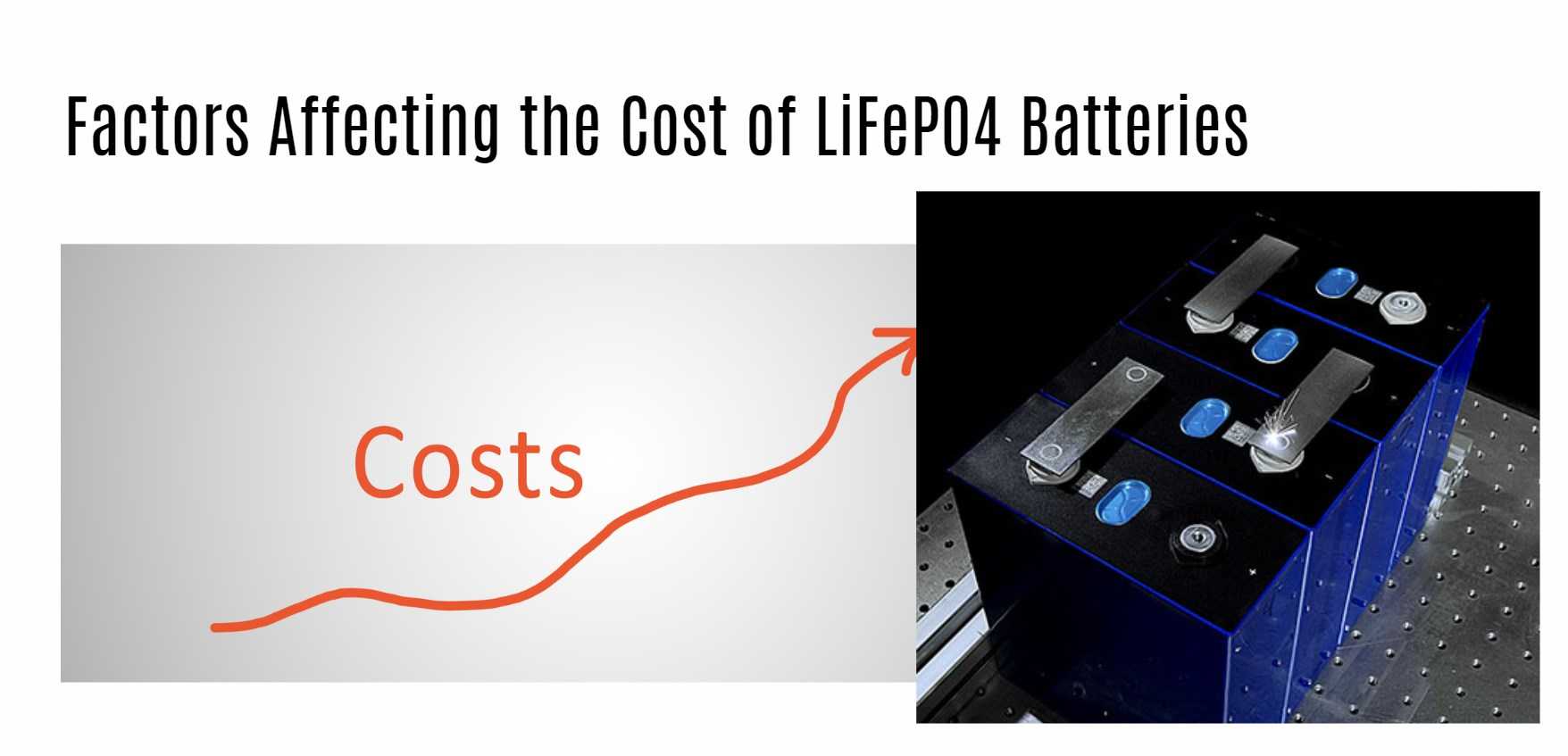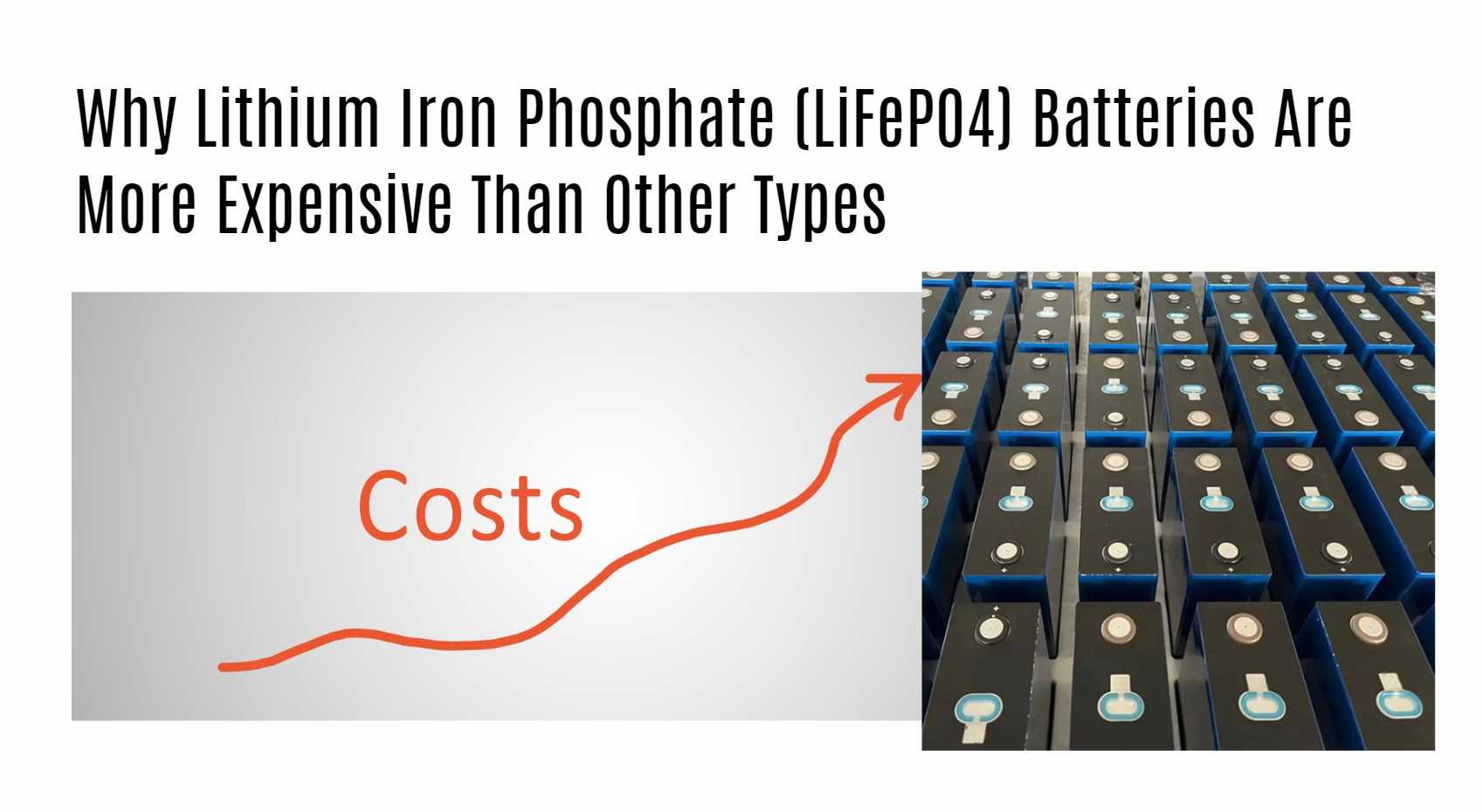When it comes to powering our devices, vehicles, and renewable energy systems, the type of battery we choose can make a significant difference. One option that has been gaining attention in recent years is Lithium Iron Phosphate (LiFePO4) batteries. While these batteries offer numerous advantages, they also come with a higher price tag compared to other types on the market. In this blog post, we’ll explore why LiFePO4 batteries are more expensive, their benefits, and whether the investment is worth it in the long run. Let’s dive in!
Comparison with Other Types of Batteries
When it comes to comparing Lithium Iron Phosphate (LiFePO4) batteries with other types of batteries, there are several key differences to consider. One main distinction is the safety factor – LiFePO4 batteries are known for their stable chemistry and reduced risk of thermal runaway compared to other lithium-ion batteries. This makes them a popular choice for applications where safety is a top priority.
In terms of longevity, LiFePO4 batteries typically have a longer lifespan than traditional lead-acid or lithium-ion batteries. This means fewer replacements over time, ultimately leading to cost savings in the long run. Additionally, LiFePO4 batteries offer faster charging speeds and higher energy density, making them ideal for high-performance applications such as electric vehicles or solar power storage.
While LiFePO4 batteries may come at a higher initial cost compared to other battery types, their superior performance and durability make them a worthwhile investment for many consumers looking for reliable power solutions that stand the test of time.
Advantages of LiFePO4 Batteries
Lithium Iron Phosphate (LiFePO4) batteries are gaining popularity in various applications due to their numerous advantages. One key benefit is their impressive lifespan, lasting significantly longer than other types of batteries. This longevity translates to cost savings in the long run, as users won’t need to replace them as often.
Another advantage of LiFePO4 batteries is their enhanced safety features. They are known for being more stable and less prone to overheating or catching fire compared to other lithium-ion batteries. This makes them a reliable choice for critical applications where safety is paramount.
Moreover, LiFePO4 batteries boast a high energy density, meaning they can store more power in a smaller and lighter package. This makes them ideal for use in portable devices or electric vehicles where weight and space constraints are crucial considerations.
In addition, LiFePO4 batteries have faster charging capabilities compared to traditional lead-acid batteries, allowing for quicker turnaround times between charges. This convenience factor is especially important in today’s fast-paced world where efficiency is key.
Factors Affecting the Cost of LiFePO4 Batteries
When it comes to understanding why Lithium Iron Phosphate (LiFePO4) batteries are more expensive than other types, considering the factors affecting their cost is crucial. One significant factor is the raw materials used in manufacturing these batteries. LiFePO4 batteries require high-quality materials, which can drive up production costs.
Additionally, the production process for LiFePO4 batteries involves complex technologies and equipment that contribute to their higher price point. The research and development invested in enhancing the performance and longevity of these batteries also play a role in their cost.
Moreover, the size and capacity of LiFePO4 batteries can impact their pricing. Larger capacity batteries typically come with a heftier price tag due to increased material requirements and manufacturing complexities. Furthermore, market demand and supply chain dynamics can influence the overall cost of LiFePO4 batteries.
Various factors such as raw materials, production processes, technology advancements, battery size, and market trends all contribute to why LiFePO4 batteries are priced higher compared to other battery types.

Safety and Longevity of LiFePO4 Batteries
When it comes to Lithium Iron Phosphate (LiFePO4) batteries, safety and longevity are key factors that set them apart from other types. These batteries are known for their stability and resistance to overcharging, overheating, and short-circuiting.
Unlike other lithium-ion batteries, LiFePO4 batteries have a longer lifespan due to their stable chemistry. This means they can withstand more charge-discharge cycles before experiencing significant degradation.
In terms of safety, LiFePO4 batteries have a lower risk of thermal runaway or catching fire compared to other lithium-ion batteries. This is because the iron-phosphate cathode is less reactive at high temperatures.
The safety and longevity of LiFePO4 batteries make them an attractive choice for applications where reliability is crucial. Whether it’s powering electric vehicles or storing renewable energy, these batteries offer peace of mind knowing that they can deliver consistent performance over time without compromising safety standards.
Common Applications of LiFePO4 Batteries
LiFePO4 batteries are widely used in the renewable energy sector, powering solar energy storage systems for homes and businesses. These batteries provide a reliable source of backup power during outages.
In the automotive industry, LiFePO4 batteries are becoming increasingly popular for electric vehicles due to their high energy density and longer lifespan compared to traditional lead-acid batteries.
Marine enthusiasts also benefit from using LiFePO4 batteries to power trolling motors, fish finders, and other electronic devices on boats. Their lightweight design makes them ideal for marine applications where space is limited.
Furthermore, LiFePO4 batteries are utilized in off-grid applications such as RVs, campers, and remote cabins where access to electricity may be limited. These versatile batteries ensure a steady power supply in challenging environments without compromising performance.
Conclusion: Is the Higher Cost Worth It?
When considering whether the higher cost of Lithium Iron Phosphate (LiFePO4) batteries is worth it, it ultimately comes down to your specific needs and priorities. While these batteries may be more expensive upfront compared to other types, their numerous advantages such as longer lifespan, increased safety, faster charging times, and superior performance make them a worthwhile investment for many applications.
If you require a reliable power source that delivers consistent performance over an extended period without compromising on safety or efficiency, LiFePO4 batteries are an excellent choice. The initial investment may be higher, but the long-term benefits far outweigh the cost. So, next time you’re in the market for a battery solution that offers reliability and longevity, consider opting for LiFePO4 batteries – because sometimes paying a little extra upfront can save you more in the long run!




